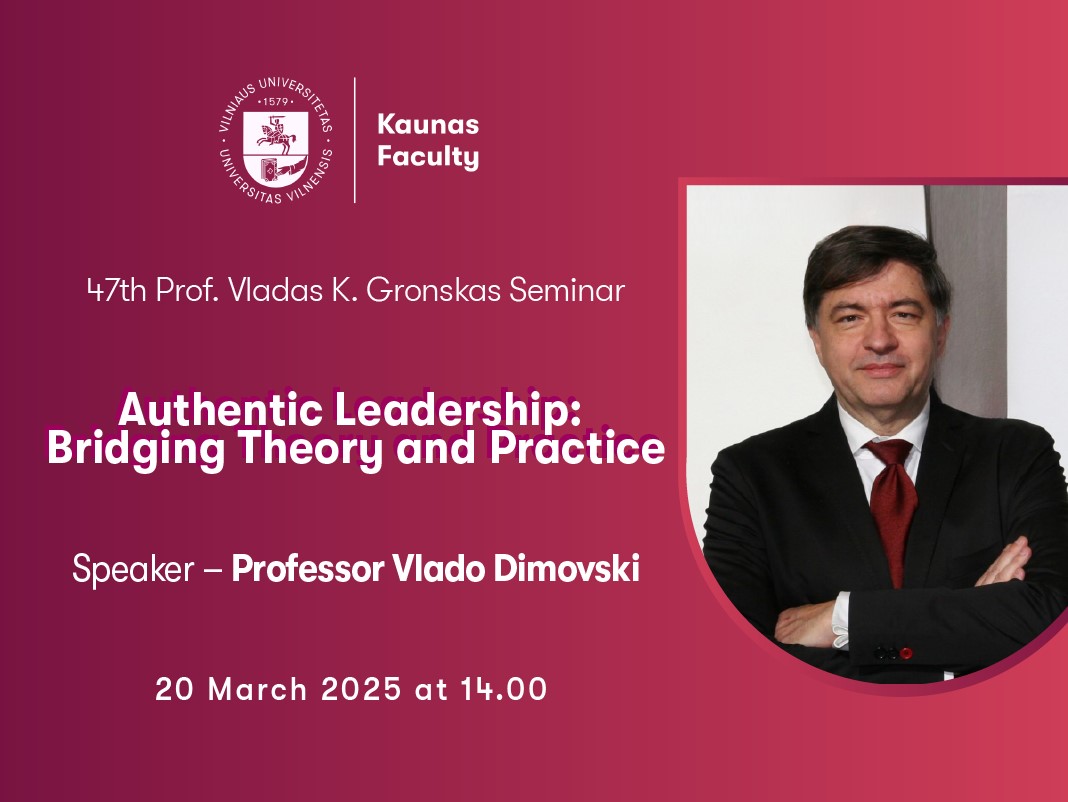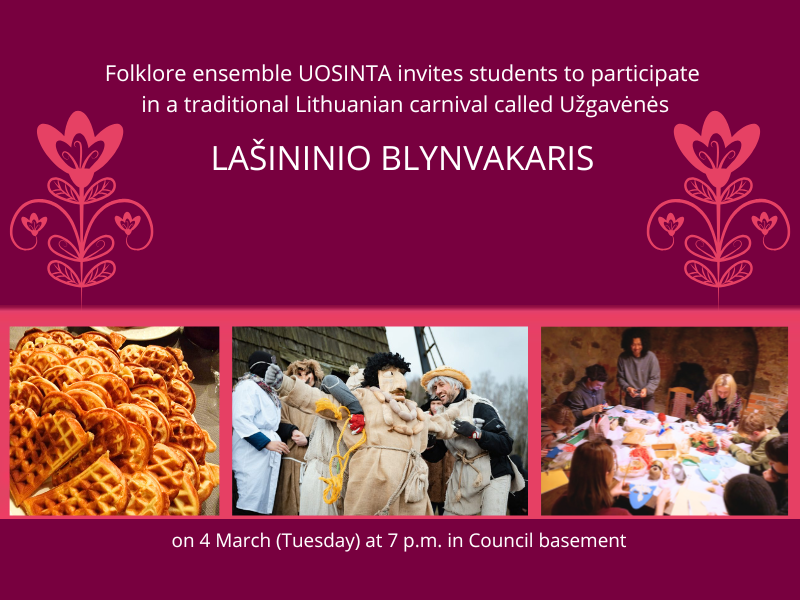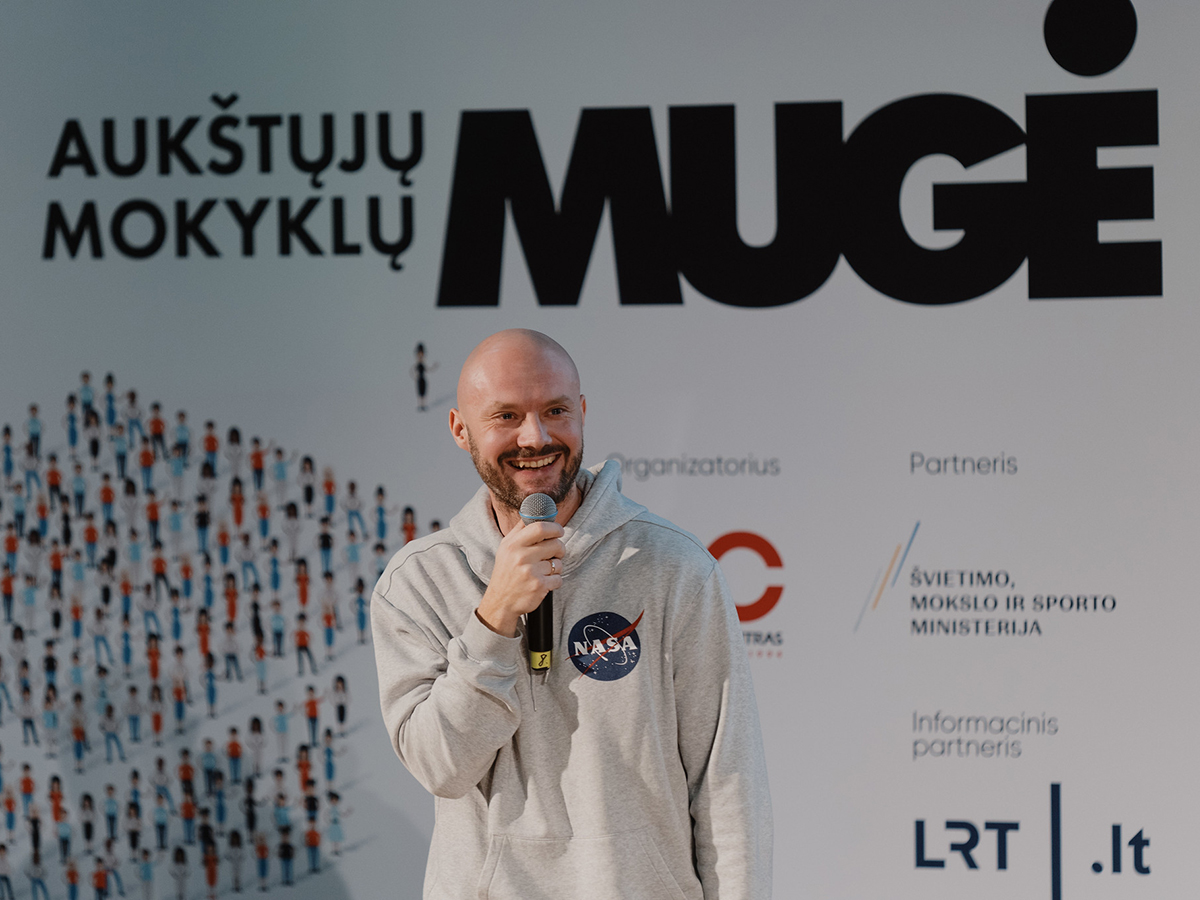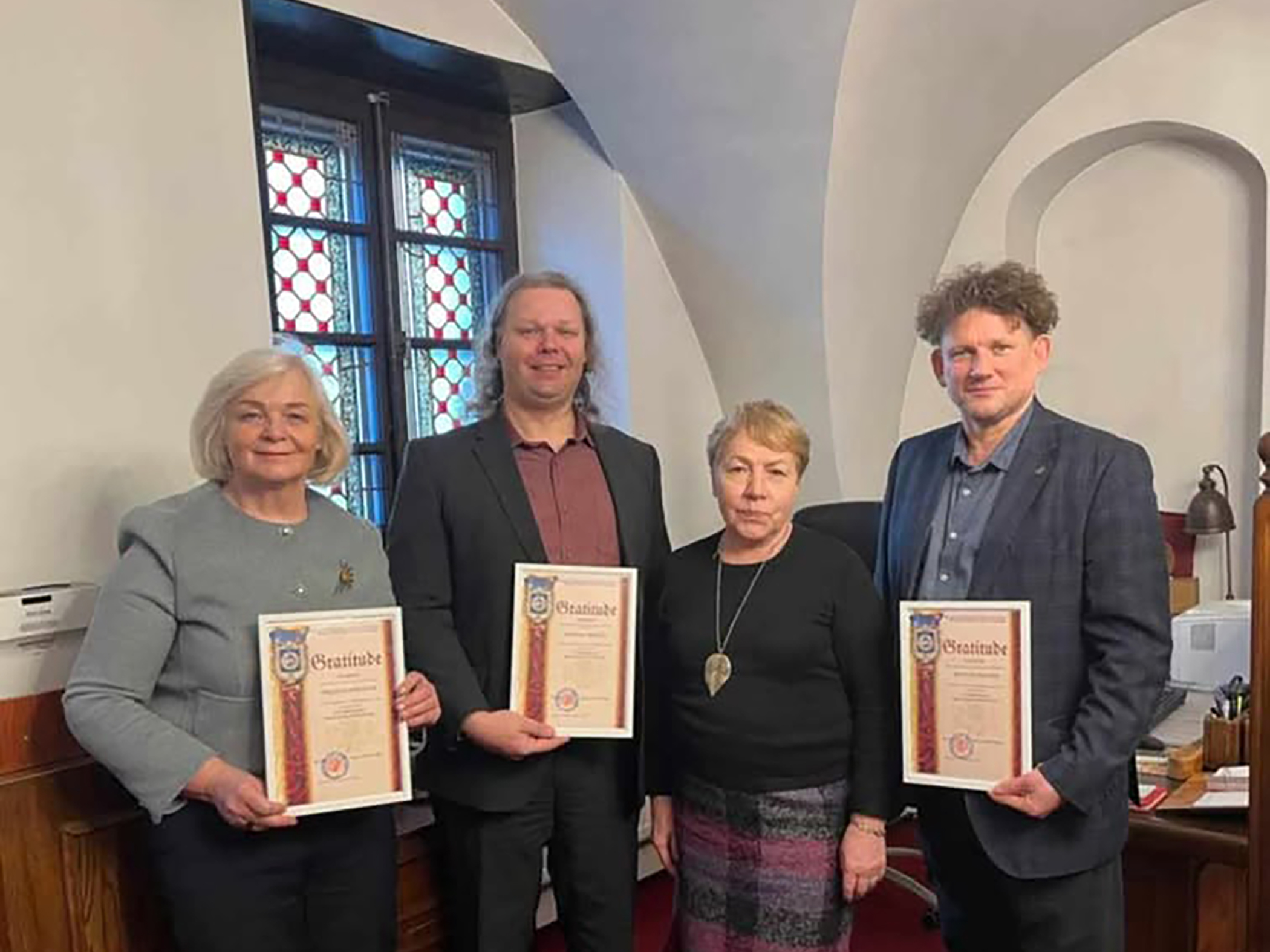Lithuanian language skills make foreign students feel more comfortable
 As many as 103 foreign students enrolled at Vilnius University Kaunas Faculty in 2024, coming from more than 15 countries: Ghana, Bangladesh, the Islamic Republic of Pakistan, Nigeria, India, Ukraine, etc. First-year Bachelor's and Master's students enrolled in 2024-2025 were given the opportunity to study Lithuanian for free during the autumn semester. The students were taught Lithuanian by three teachers: Assoc. Prof. Audronė Rimkutė, J. Assist. Monika Stankienė and Lect. Indrė Bagdžiūtė. Those who successfully completed the course were awarded Lithuanian language A1.1 level certificates. The students say that the Lithuanian language courses have significantly improved their integration and experience in the country.
As many as 103 foreign students enrolled at Vilnius University Kaunas Faculty in 2024, coming from more than 15 countries: Ghana, Bangladesh, the Islamic Republic of Pakistan, Nigeria, India, Ukraine, etc. First-year Bachelor's and Master's students enrolled in 2024-2025 were given the opportunity to study Lithuanian for free during the autumn semester. The students were taught Lithuanian by three teachers: Assoc. Prof. Audronė Rimkutė, J. Assist. Monika Stankienė and Lect. Indrė Bagdžiūtė. Those who successfully completed the course were awarded Lithuanian language A1.1 level certificates. The students say that the Lithuanian language courses have significantly improved their integration and experience in the country.
A course to get to know the language and culture
“This optional course is designed to help students learn how to communicate in Lithuanian about commonly known subjects in everyday situations. We think it is important to understand the language at least a little when you come to study in Lithuania. I am delighted that students are realising this and choosing the subject,” says the teacher Assoc. Prof. Audronė Rimkutė.
She notes that students with more language skills feel more comfortable in new environments, accept cultural differences more easily, and are more eager to attempt to communicate with native speakers. The Associate Professor strives to make the learning process dynamic and engaging, using active learning (dialogues, situations, pair work, group tasks) and communicative methods (exercises).
Read more: Lithuanian language skills make foreign students feel more comfortable
 Folklore ensemble UOSINTA invites students to participate in a traditional Lithuanian carnival called Užgavėnės "Lašininio blynvakaris" on 4 March (Tuesday) In Council Basement.
Folklore ensemble UOSINTA invites students to participate in a traditional Lithuanian carnival called Užgavėnės "Lašininio blynvakaris" on 4 March (Tuesday) In Council Basement.



 Assoc. Prof. Giedrius Romeika, the Dean of Vilnius University Kaunas Faculty, Assoc. Prof. Kęstutis Driaunys, the former Dean, and Prof. Dr Virginija Jurėnienė were awarded certificates of appreciation by the Minister of Education and Science of Ukraine and the Rector of the National University of Food Technologies for active cooperation in study and research activities to commemorate the 140th anniversary of the establishment of the National University of Food Technologies. The certificates were awarded by University Professor Svitlana Gutkevych.
Assoc. Prof. Giedrius Romeika, the Dean of Vilnius University Kaunas Faculty, Assoc. Prof. Kęstutis Driaunys, the former Dean, and Prof. Dr Virginija Jurėnienė were awarded certificates of appreciation by the Minister of Education and Science of Ukraine and the Rector of the National University of Food Technologies for active cooperation in study and research activities to commemorate the 140th anniversary of the establishment of the National University of Food Technologies. The certificates were awarded by University Professor Svitlana Gutkevych.